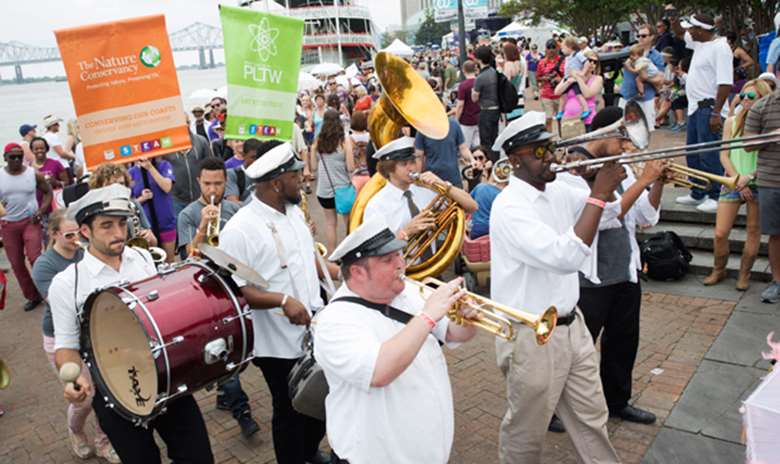French Quarter Festival gets down with the Dirty Dozen in the eye of the storm
Wednesday, April 29, 2015
Rain stopped play, well, almost. Or intermittently, at least.


Register now to continue reading

Thank you for visiting Jazzwise.co.uk. Sign up for a free account today to enjoy the following benefits:
- Free access to 3 subscriber-only articles per month
- Unlimited access to our news, live reviews and artist pages
- Free email newsletter